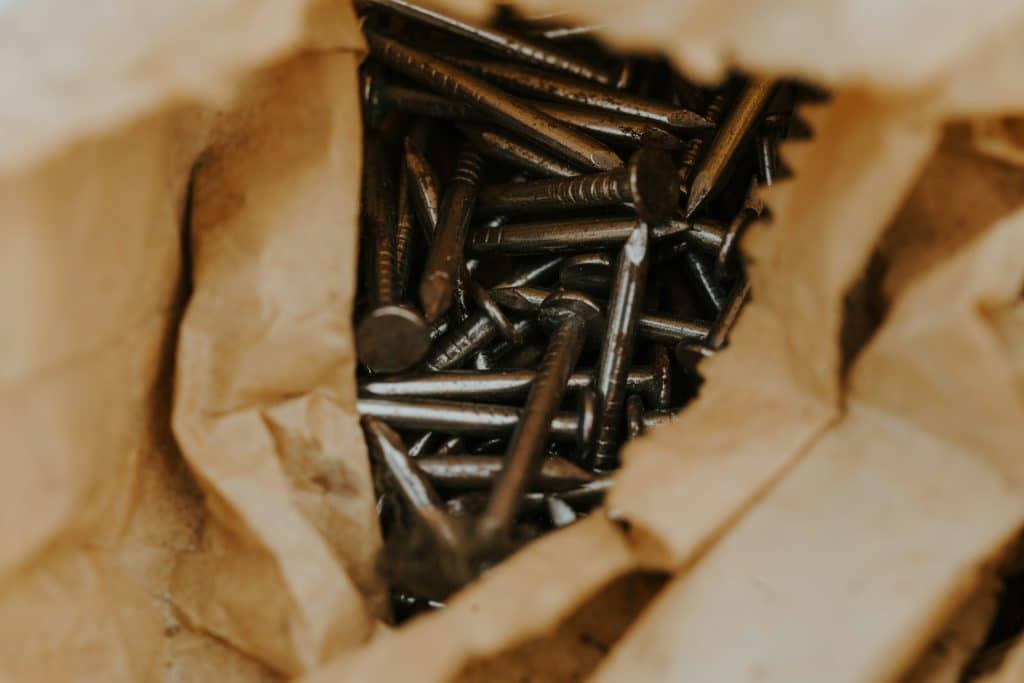When it comes to fastenings, the nut screw is one of the most common types of hardware used in various industries. As a wholesale distributor of fastenings, Fastening Specialists has been a trusted source for over 65 years. We pride ourselves on our extensive knowledge and expertise in this field, making us the go-to choice for all your fastening needs.
A nut screw is a type of fastener that consists of a threaded bolt and a nut. The bolt screws into the nut to hold materials together securely. There are various types of nut screws, including machine bolts, eye bolts, wheel bolts, cap nuts, expansion nuts, and u-nuts. The type of material and finish also factors into how fastener types look and perform. Our website features a comprehensive range of nut screws, available in different sizes, materials, and finishes to suit your specific needs.
At Fastening Specialists, we understand that choosing the right fastener can be overwhelming. That’s why we offer expert advice, product value, and code expertise to help you make an informed decision. Our website also features detailed product descriptions, terms and conditions, and a privacy policy to ensure a seamless shopping experience. Trust the specialists for all your fastening needs. Remember to always check with local building codes and engineers for correct usage instructions.
Fundamentals of Nut Screws
When it comes to fastening two or more objects together, nut screws are an essential component. Nut screws are a type of fastener that consists of a bolt and a nut, which is threaded onto the bolt to secure the objects in place. In this section, we will cover the fundamentals of nut screws, including the different types, materials and composition, and standard sizing and threads.
Types of Nut Screws
Nut screws come in a variety of types, each with its own unique features and applications. Some of the most common types of nut screws include hex nuts, wing nuts, and lock nuts. Hex nuts are the most common type of nut screw and are used in a wide range of applications. Wing nuts are designed to be tightened and loosened by hand, making them ideal for applications where tools are not readily available. Lock nuts, on the other hand, are designed to prevent the nut from loosening due to vibration or other forces.
Materials and Composition
Nut screws are available in a variety of materials, including stainless steel, brass, and steel. Stainless steel is a popular choice for nut screws due to its corrosion-resistant properties. Brass is another popular choice, particularly for decorative applications, as it has an attractive appearance. Steel is a strong and durable material that is commonly used in industrial applications.
Standard Sizing and Threads
Nut screws are available in a range of standard sizes and threads, including metric and imperial sizes. The size of the nut screw is determined by the diameter of the bolt, while the thread is determined by the number of threads per inch. It is important to select the correct size and thread for your application to ensure a secure and reliable connection.
At Fastening Specialists, we are the experts in the field of fastenings. With over 65 years of experience as a trusted wholesale distributor, we are the people to trust for everything related to fastening. We offer a wide range of nut screws in various sizes, materials, and types to suit your specific needs. Our team of experts can provide you with valuable insights and advice to help you select the right nut screw for your application.
Remember, the team at Fastening Specialists provides advice and best use-cases, but always check with local building codes and engineers for correct usage instructions.
Applications and Uses
When it comes to fasteners, nuts and screws are some of the most commonly used components. Nuts and screws are used in a wide variety of applications across multiple industries, including automotive, construction, plumbing, and mechanical systems. In this section, we’ll explore some of the most common applications and uses of nuts and screws.
Industrial and Construction
In the industrial and construction sectors, nuts and screws are used to fasten components together. They are commonly used to secure machinery, equipment, and other heavy-duty applications. For instance, lag bolts are used to secure wood to concrete or masonry, while U-bolts are used to secure pipes and other cylindrical objects.
Automotive Sector
In the automotive sector, nuts and screws are used to secure various components of the vehicle. They are used to secure everything from the engine to the body of the car. Carriage bolts are used to secure the chassis of the car, while threaded holes are used to secure the engine to the frame.
Plumbing and Mechanical Systems
In plumbing and mechanical systems, nuts and screws are used to secure pipes and other components together. They are used to create a tight seal, preventing leaks and other issues. For instance, nuts and screws are used to secure plumbing fixtures, such as faucets and toilets, to the pipes.
As a trusted wholesale distributor for over 65 years, Fastening Specialists is the best option for all your fastening needs. With so many sizes, applications, features, designs, materials, coatings, and SKU names, we know that fastenings can be overwhelming. Serving a long list of industries, you can trust THE specialists for the best in product value, insight, code expertise, and order fulfillment.
The team at Fastening Specialists provides advice and best use-cases, but always check with local building codes and engineers for correct usage instructions.
Installation and Torque Considerations
Proper Installation Techniques
When it comes to installing nuts and screws, proper technique is essential to ensure a secure and long-lasting fastening. One important factor to consider is the taper of the male threads, which must match the taper of the female threads in the nut to ensure a tight grip. Additionally, the length of the male threads should be sufficient to ensure full engagement with the female threads in the nut.
Proper installation also involves minimizing friction between the threads and between the nut face and the mating surface. This can be achieved by using lubricants or anti-seize compounds, which can help reduce the amount of torque required to achieve the desired level of tension.
When installing nuts and screws, it is also important to use the correct tools and techniques to achieve the desired level of torque. This is where Fastening Specialists can help. As a trusted wholesale distributor for over 65 years, we are specialists in this field and can provide you with the best in product value, insight, and code expertise.
Torque and Tensioning
Achieving the correct level of torque is essential to ensure that nuts and screws are properly tensioned and secure. The relationship between applied torque and the tension created is described by the nut factor, which takes into account factors such as thread pitch, friction, and grip length.
At Fastening Specialists, we understand that selecting the correct torque values can be overwhelming due to the many sizes, applications, features, designs, materials, coatings, and SKU names available. That’s why we offer expert advice and best-use cases for all of our products.
Remember, while we provide advice and best-use cases, it is always important to check with local building codes and engineers for correct usage instructions. Trust the specialists at Fastening Specialists for all of your fastening needs.
The team at Fastening Specialists provides advice and best-use cases, but always check with local building codes and engineers for correct usage instructions.
Specialty Nut Screws and Variants
When it comes to fastening, nuts and bolts are the backbone of many industries. But not all nuts and bolts are created equal. Specialty nut screws and their variants offer unique features and designs to meet specific application needs. In this section, we’ll explore some of the most common specialty nut screws and their variants.
Locking Mechanisms and Nuts
Locking mechanisms and nuts are designed to prevent the nut from loosening due to vibration or other external forces. Common types of locking mechanisms include nylon-insert lock nuts, prevailing torque lock nuts, and all-metal lock nuts. Nylon-insert lock nuts are made of a nylon material that creates friction against the bolt threads, while prevailing torque lock nuts have a built-in locking mechanism that resists loosening. All-metal lock nuts use deformation to create a locking mechanism.
Specialty Shapes and Designs
Specialty shapes and designs of nuts include wing nuts, flange nuts, jam nuts, acorn nuts, coupling nuts, square nuts, T-nuts, castellated nuts, keps nuts, speed nuts, locknuts, and cap nuts. Wing nuts are designed for easy hand tightening and loosening, while flange nuts have a larger surface area for better distribution of force. Jam nuts are used as a backup to another nut to prevent loosening, while acorn nuts have a decorative cap covering the nut. Coupling nuts are used to extend threaded rod, while square nuts have a larger surface area for better distribution of force. T-nuts are used in woodworking applications, while castellated nuts have slots for use with a cotter pin. Keps nuts have a built-in washer to prevent loosening, while speed nuts have a spring-like design for easy installation. Locknuts are designed to prevent loosening, and cap nuts have a decorative cap covering the nut.
As a trusted wholesale distributor for over 65 years, Fastening Specialists is the best option for all your fastening needs. We are specialists in this field, offering a wide range of products, insight, and code expertise. With so many sizes, applications, features, designs, materials, coatings, and SKU names, we know that fastenings can be overwhelming. Serving a long list of industries, you can trust THE specialists for the best in product value and order fulfillment.
The team at Fastening Specialists provides advice and best use-cases, but always check with local building codes and engineers for correct usage instructions.
Quality Standards and Compliance
When it comes to nut screws, quality standards and compliance are crucial for ensuring safety and reliability. There are several standards and grades that dictate the quality and performance of nut screws, and it’s important to understand these standards when selecting the right fasteners for your application.
ISO and ANSI Standards
The International Organization for Standardization (ISO) and the American National Standards Institute (ANSI) are two organizations that set standards for nut screws. These standards cover everything from the dimensions and materials of the fasteners to the testing and performance requirements.
At Fastening Specialists, we offer a wide range of nut screws that meet ISO and ANSI standards. Our products are made from high-quality materials, such as alloy steel and medium carbon steel, and are available in various grades and finishes.
Grades and Corrosion Resistance
Nut screws are available in different grades, which indicate the strength and durability of the fastener. The most common grades are 2, 5, and 8, with grade 8 being the strongest. It’s important to select the right grade for your application to ensure the safety and reliability of your fasteners.
Corrosion resistance is another important factor to consider when selecting nut screws. Stainless steel nut screws offer excellent corrosion resistance, making them ideal for outdoor and marine applications. At Fastening Specialists, we offer a wide range of stainless steel nut screws that meet the highest standards for corrosion resistance.
When it comes to selecting the right nut screws for your application, you can trust Fastening Specialists to provide the best in product value, insight, and code expertise. As a trusted wholesale distributor for over 65 years, we are specialists in this field and have the knowledge and experience to help you choose the right fasteners for your needs.
Remember, the team at Fastening Specialists provides advice and best use-cases, but always check with local building codes and engineers for correct usage instructions.

